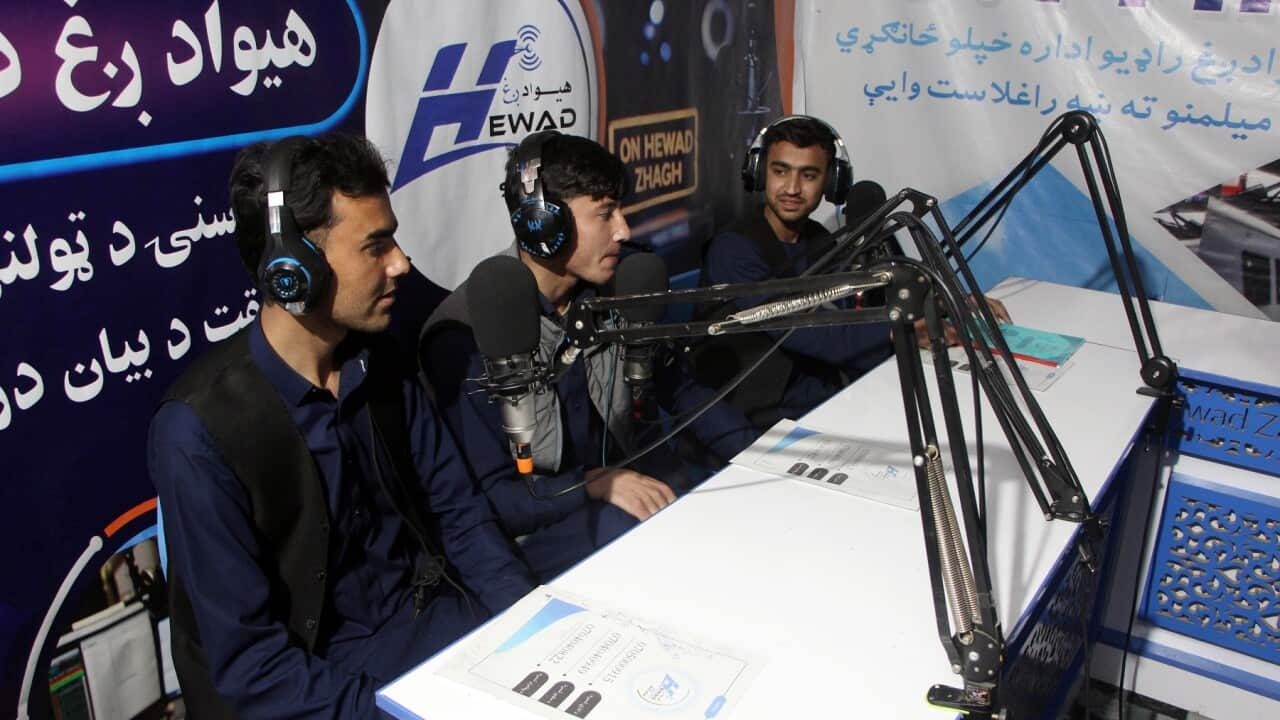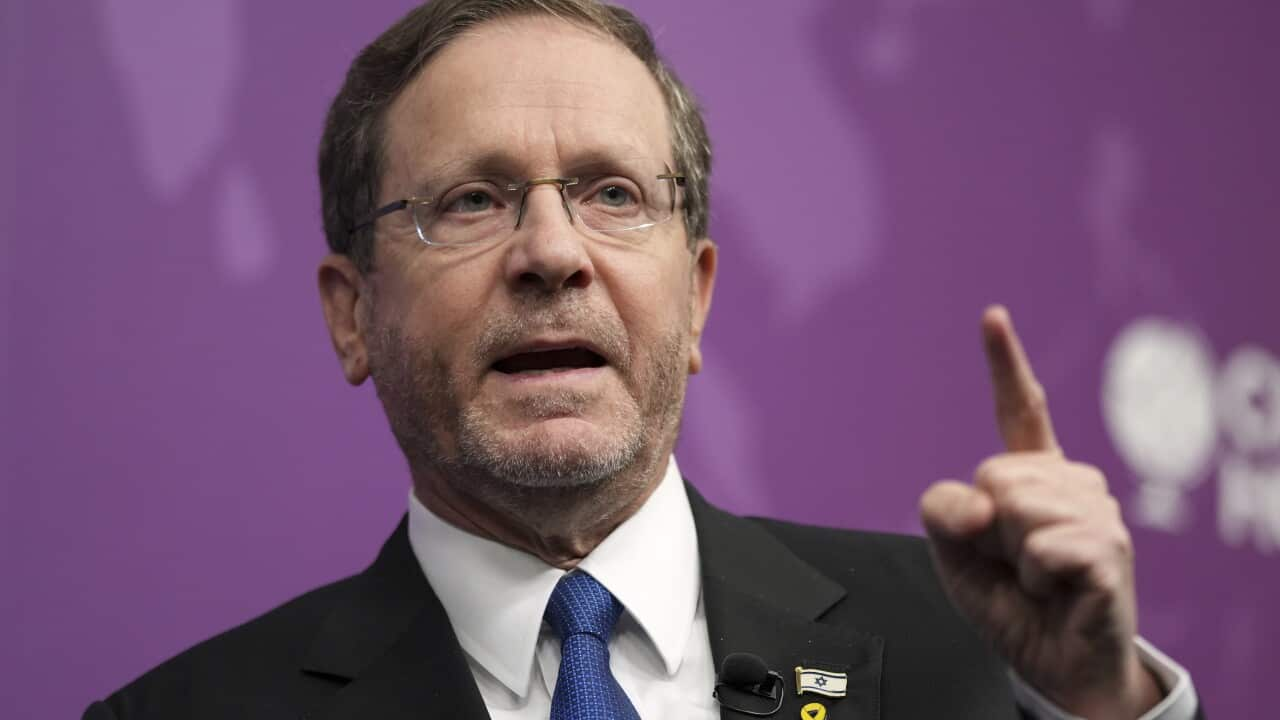Listen to Australian and world news, and follow trending topics with SBS News Podcasts.
TRANSCRIPT
British Prime Minister Keir Starmer and French President Emmanuel Macron have unveiled what they’re calling a groundbreaking returns pilot.
Sir Keir explains.
“For the very first time, migrants arriving via small boat will be detained and returned to France in short order. In exchange for every return, a different individual will be allowed to come here via a safe route, controlled and legal, subject to strict security checks, and only open to those who have not tried to enter the UK illegally.”
It’s a one in, one out model.
Britain gets to remove undocumented arrivals from its shores.
In return, it accepts vetted asylum seekers with legitimate family ties to the UK.
The scheme is expected to begin in weeks, but the numbers, at least for now, are modest.
Sources suggest only about 50 returns a week, or 2,600 a year, compared to more than 35,000 arrivals in 2024 and over 21,000 already this year, a record pace.
The logic is deterrence.
That’s what Mr Macron says - suggesting smugglers are exploiting legal loopholes created by Brexit.
"Simply put, it is since Brexit that the United Kingdom no longer has a migration agreement with the European Union. And so yes, for those trying to cross, there exist neither an alternative legal path to admission nor a method of readmission after a crossing. And the current situation, in reality, creates an incitement to participate in a crossing. And so it's the exact opposite or what was offered, or rather promised, by Brexit."
He went further, saying that Brexit left a legal void.
"We especially have to adapt our response to Brexit, and it's that the British people were sold a lie, which is that the problem was Europe. Simply put, by leaving a legal void, Brexit became the problem."
On one side, supporters see this meeting as a reset in UK-French cooperation after years of post-Brexit acrimony.
On the other, critics question whether it’s more show than substance.
Over the past decade, more than 63,000 migrants have died or gone missing while attempting to reach Europe.
This number, recorded by the International Organisation for Migration's Missing Migrants Project, is likely an undercount due to the clandestine nature of many crossings.
The Mediterranean Sea route is particularly dangerous, with over 28,000 deaths or disappearances recorded since 2014.
2023 was the deadliest year on record, with more than 8,500 fatalities.
Migration analyst Mihnea Cuibus is from Oxford’s Migration Observatory.
He points to the critical issue of scale.
"The real question here is how many people can be sent back. It's a question of scale. If a large proportion of the people who arrived by small boats are sent back to France rather quickly under such a scheme, then it's very possible that there will be a deterrent effect. Again, it's about pure incentives. You're not going to get on a boat and pay thousands to a smuggler if you know there's a very high chance you'll end up on the same beach within days. But if the scheme only covers a small number of people, then it seems very difficult that will it will actually affect anyone's decision. So it it does boil down to numbers at the end of the day."
He also notes that the small boat crossings, now frequent, are themselves a product of earlier enforcement at ports and lorry terminals.
"A lot of people are actually arguing that the emergence of the small boats routes starting in 2017, 2018 and then ramping up was in itself a response to increased enforcement around the border to prevent lorry crossings. Essentially, it became so hard for people to cross using other means that that pressure, that demand for crossing ended up pushing the development of a new rule."
And those migrants keep coming.
Many are Syrian, Afghan, Sudanese, and increasingly from West and North Africa.
Most have travelled thousands of kilometres, often after unsuccessful attempts to settle elsewhere in Europe.
For them, Britain is not the first option, it’s the last.
"They have had quite negative experiences on the continent. They've tried to apply for asylum in other places, to settle in other places, and they found that that they either didn't get status or weren't getting the life they expected there. And in that situation, your only option is to keep going. And if you keep going through Europe, you'll eventually end up on the north coast of France, and the UK is essentially a sort of last chance."
To understand how we got here, we have to look back.
The Syrian war in 2011 sparked Europe’s worst refugee crisis since World War Two in terms of the number of people displaced, around 14 million people.
UNHCR says over a million Syrians reached the EU after the start of that war.
Russia’s 2022 invasion of Ukraine also triggered another wave.
According to the UN more than six million Ukrainian refugees are registered in Europe - unlike many from the Middle East and Africa, a disparity criticised by rights groups.
Today, Europe’s stance is hardening again.
Greece is set to suspend asylum claims from arrivals via Libya and North Africa.
Migration Minister Thanos Plevris had this to say:
"So, from now on, the road for illegal migrants is go to jail or go back to their country.... The message is clear: stay where you are, you are not welcome here."
Mr Plevris argues the move is necessary to deter what he calls an invasion.
But human rights groups warn the bill violates both EU and international law, stripping people of the right to seek protection.
Whether Mr Macron and Mr Starmer’s new deal or Greece's decision to suspend migration, marks a turning point or simply another stopgap remains to be seen.













